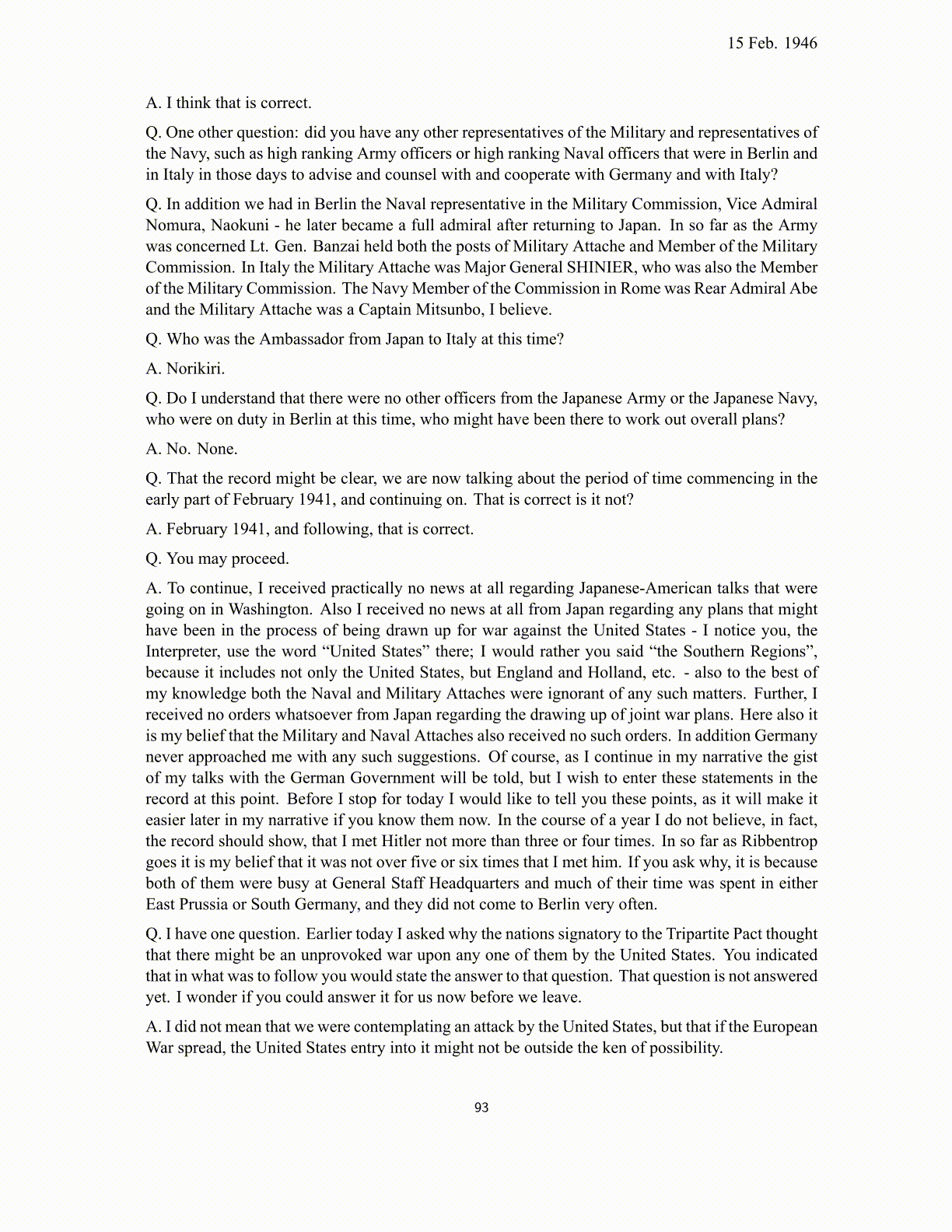
15 Feb. 1946 A. I think that is correct. Q. One other question: did you have any other representatives of the Military and representatives of the Navy, such as high ranking Army officers or high ranking Naval officers that were in Berlin and in Italy in those days to advise and counsel with and cooperate with Germany and with Italy? Q. In addition we had in Berlin the Naval representative in the Military Commission, Vice Admiral Nomura, Naokuni - he later became a full admiral after returning to Japan. In so far as the Army was concerned Lt. Gen. Banzai held both the posts of Military Attache and Member of the Military Commission. In Italy the Military Attache was Major General SHINIER, who was also the Member of the Military Commission. The Navy Member of the Commission in Rome was Rear Admiral Abe and the Military Attache was a Captain Mitsunbo, I believe. Q. Who was the Ambassador from Japan to Italy at this time? A. Norikiri. Q. Do I understand that there were no other officers from the Japanese Army or the Japanese Navy, who were on duty in Berlin at this time, who might have been there to work out overall plans? A. No. None. Q. That the record might be clear, we are now talking about the period of time commencing in the early part of February 1941, and continuing on. That is correct is it not? A. February 1941, and following, that is correct. Q. You may proceed. A. To continue, I received practically no news at all regarding Japanese-American talks that were going on in Washington. Also I received no news at all from Japan regarding any plans that might have been in the process of being drawn up for war against the United States - I notice you, the Interpreter, use the word “United States” there; I would rather you said “the Southern Regions”, because it includes not only the United States, but England and Holland, etc. - also to the best of my knowledge both the Naval and Military Attaches were ignorant of any such matters. Further, I received no orders whatsoever from Japan regarding the drawing up of joint war plans. Here also it is my belief that the Military and Naval Attaches also received no such orders. In addition Germany never approached me with any such suggestions. Of course, as I continue in my narrative the gist of my talks with the German Government will be told, but I wish to enter these statements in the record at this point. Before I stop for today I would like to tell you these points, as it will make it easier later in my narrative if you know them now. In the course of a year I do not believe, in fact, the record should show, that I met Hitler not more than three or four times. In so far as Ribbentrop goes it is my belief that it was not over five or six times that I met him. If you ask why, it is because both of them were busy at General Staff Headquarters and much of their time was spent in either East Prussia or South Germany, and they did not come to Berlin very often. Q. I have one question. Earlier today I asked why the nations signatory to the Tripartite Pact thought that there might be an unprovoked war upon any one of them by the United States. You indicated that in what was to follow you would state the answer to that question. That question is not answered yet. I wonder if you could answer it for us now before we leave. A. I did not mean that we were contemplating an attack by the United States, but that if the European War spread, the United States entry into it might not be outside the ken of possibility. 93